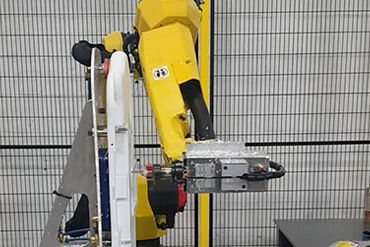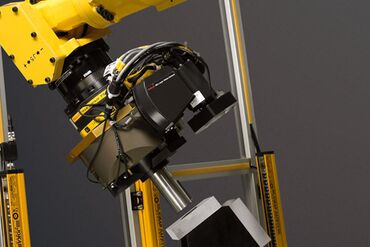Types of Automation
Nov 2, 2011
Automation succeeds at improving overall productivity, creating easier ways to conduct processes, while also decreasing health risks for human workers. Industrial robots enable decreased cycle times, increased product quality, and a better safety environment.
Automation is a method using a wide range of computer- and machine-aided tasks to help improve productivity and create easier ways to do business. Different types of automation are commonly used in different types of industries. For example, automated meters and pumps assist consumers daily when they pump their gas. In industrial settings, different types of automation provide benefits to companies including decreased part-cycle times, higher quality products, and increased worker safety.
Industrial Automation
Using technology to perform tasks that can be repetitive, dangerous, or otherwise unsuitable for humans is known as industrial automation. Numerically controlled (NC) equipment, industrial automated robots, flexible manufacturing systems (FMS), and computer-aided manufacturing (CAM) are all types of automation that industries implement into their factories.
Numerically Controlled Machines
Numerically controlled (NC) machines utilize computers to store, calculate, and execute operations that are usually performed by hand. A common example of an NC machine is the computerized numerical controlled (CNC) mill. Instead of positioning each cut by hand and meticulously moving the crank to cut each part, a CNC mill uses computers to analyze, cut, and mill each piece with precision. CNC mills and other NC machinery produce parts with fewer errors and higher accuracy.
Industrial Robots
Automating industrial applications with an automated robotics systems provides many of the same benefits as NC equipment – higher quality parts, reduced cycle times, and increased savings to name a few. Industrial robots, like other automation types, can work 24 hours a day, 7 days a week to keep up with industry demands. Environments that prove to be dangerous for human workers are suitable for industrial robots. Despite a high initial cost, the return on investment (ROI) for an industrial automated robot is typically about six months due to the increased savings and production that robots provide. These machines can perform many industrial automated robotic applications including welding, material handling, assembly, palletizing, and painting.
Flexible Manufacturing Systems
A flexible manufacturing system (FMS) combines NC machines, industrial robots, and other types of industrial automation into one automation system. A FMS would typically produce similar products and parts but still maintain the flexibility to change parts or processes.
Computer-Aided Manufacturing
Computer-aided manufacturing (CAM) generalizes industrial automation one step further. CAM involves using computers in the production, planning, and control of FMS and, more generally, the entire manufacturing process. A common example of CAM is computer-aided design (CAD) or computer-aided design and drafting (CADD). CAD and CADD make use of computer programs to digitally plan products, parts, layouts, industrial robots, and a variety of other aspects of industrial settings. CAM also includes automated scheduling and manufacturing flow analysis.
Without various types of industrial automation, every aspect of manufacturing would have to be done manually. Cycle times would be much slower than they are today due to the reduced organization, consistency, and efficiency that various types of automation offer.
If you have more questions or are interested in integrating a robotic system on your production line, contact Robots.com experts today; online or at 877−762−6881.
Related Articles
You might be also interested in:

- Featured
Latest Advancements in Material Cutting Robotics
Read about the latest technological advancements in robotic material cutting.

- Featured
Emerging 3D Vision Technologies for Industrial Robots
Learn about the emerging 3D vision technology that businesses are using for industrial robot applications.

- Featured
Most Popular Industrial Robotic Applications for 2021 and Projections
Explore the most popular application trends of 2021 and what to expect in the future.
Let's talk!
Request your quick quote today.

